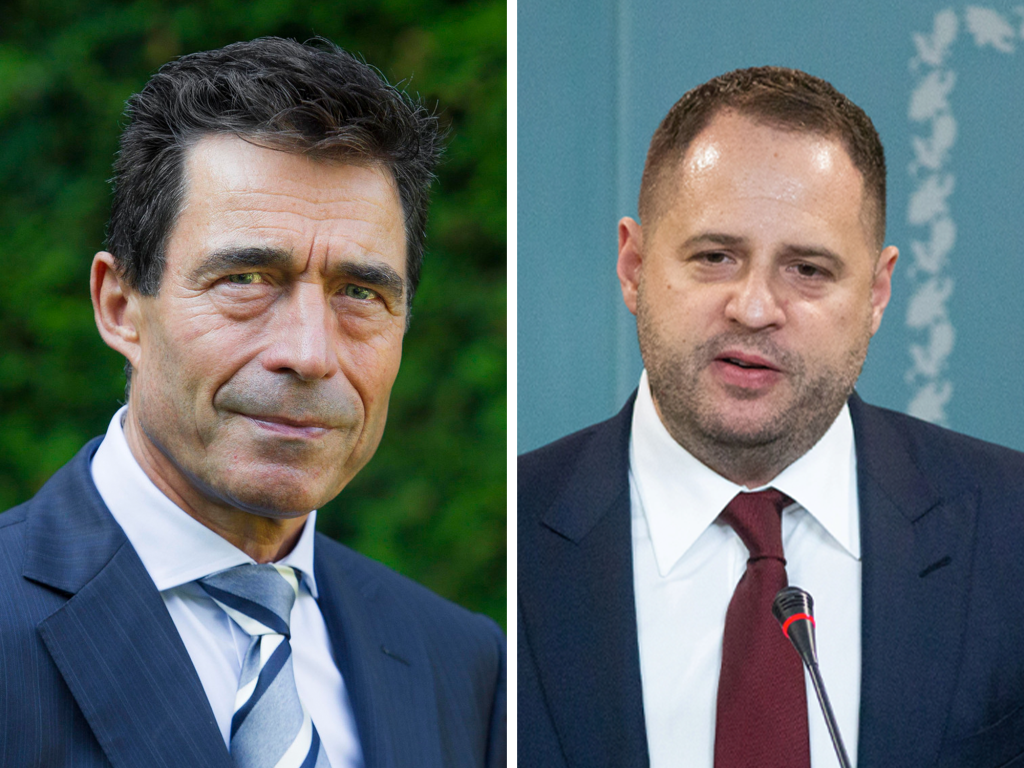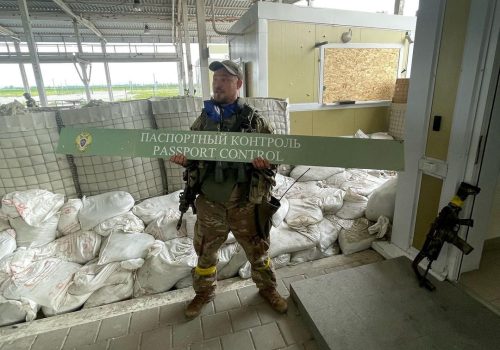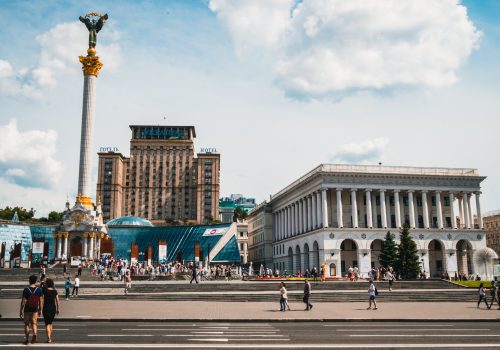
Ukraine must reduce role of state in the economy to boost EU integration

The European Commission’s Spring economic forecast for Ukraine, which was published last week, offered a more upbeat assessment of the country’s prospects than might have been expected given the devastating impact of Russia’s full-scale invasion. Despite contracting by nearly 30% in 2022, the Ukrainian economy has, according to the Commission, “demonstrated remarkable resilience” under unprecedented stress, with stabilization this year potentially paving the way for recovery in 2024, depending on the security context.
Moreover, the report makes clear that Ukraine’s fate remains, to a significant extent, in its own hands. Even in the face of ongoing Russian aggression, the country can begin reconstruction and make strides toward the goal of EU membership provided it is willing, finally, to confront problems of internal reform and governance that have held Ukraine back since independence.
The Commission forecast identifies a number of specific reform goals including reducing the much-increased role of the state in the economy, solving the endemic issue of corruption, improving the efficiency of the judiciary, and strengthening the enforceability of property rights. As anyone with experience of Ukraine’s previous reform efforts knows, these problems are deeply interconnected. The organized misappropriation of public resources for private gain is the product of a state that is simultaneously too pervasive in its reach, yet too institutionally weak to exercise its powers of regulatory and judicial oversight effectively and in the national interest. A successful reform program would be one that enabled the state to do less but do it better.
Subscribe to UkraineAlert
As the world watches the Russian invasion of Ukraine unfold, UkraineAlert delivers the best Atlantic Council expert insight and analysis on Ukraine twice a week directly to your inbox.

-
-
-
This field is for validation purposes and should be left unchanged.
To attract the huge volumes of investment, especially private capital, needed to kick start reconstruction and get the economy back on its feet, Ukraine will need to pivot away from war economy measures toward a strategy of private sector growth. The numerous emergency nationalizations that took place last year were understandable at a time when arms production and energy supply were the most urgent priorities. But in the battles that lie ahead, Ukraine’s survival will be determined as much by its economic strength as by its military prowess.
The role of the state was already outsized before Russia’s invasion, with more than 3,500 state-owned enterprises accounting for one-tenth of Ukraine’s output and about 18% of employment. The demands of war mobilization have created a public sector that is now far larger than in any existing EU member state. In the banking sector alone, the state’s share has reached nearly 60%, stifling competition to the point where the Ministry of Finance has been forced to acknowledge that there is currently no functioning financial services market.
Although the prewar target of reducing the state’s share to less than a quarter remains, the Ukrainian parliament is now debating a draft law intended to permit the nationalization of even more banks. The law is designed to deal with a single case, the proposed nationalization of the Sens Bank. However, it is drawn so broadly that critics fear it will give the state discretionary powers to take over almost any bank it wishes. This includes not only those banks that have been targeted with official state sanctions, but also those included on the “shame list” of businesses that continue to trade with Russia.
While it is perfectly understandable that Ukraine should wish to penalize businesses that have failed to cut their ties to Russia, the satisfaction of seizing their assets may come at a high cost if market confidence is undermined by the weakening of property rights. Some legal experts have also questioned whether these widely drawn powers are in line with the Ukrainian Constitution, and have argued that only the National Bank of Ukraine is empowered to approve the nationalization of a bank in cases of insolvency. Nationalizations pushed through by the government for political reasons are likely to be challenged successfully in the courts, according to legal observers.
Eurasia Center events

An additional consideration is that any increase in the state’s control of the economy is likely to fuel concern about corruption, which remains one of the main obstacles on the path to EU accession. The boundaries between political and economic power, which too often remain blurred in the characteristically post-Soviet style, need to be much more sharply delineated. As numerous scandals have shown, state-controlled banks and enterprises create huge opportunities for self-enrichment and abuses of power by those who control them ostensibly on the nation’s behalf, including kickbacks, nepotism, excessive salaries, and favoritism in the awarding of public contracts.
Instead of considering new measures to extend the state’s reach into the economy, the Ukrainian government should be thinking about how the state can divest itself of assets it has already acquired in a way that is fair, transparent, and most likely to foster the economic growth Ukraine badly needs.
If one of the few beneficial effects of the war has been to accelerate Ukraine’s deoligarchization, one of the emerging risks in its aftermath will be the danger of reoligarchization via privatizations that are opaque and marred by favoritism. Ukrainian President Volodymyr Zelenskyy must resist the temptation to use patronage to create a business class loyal to him. That would leave Ukraine looking less like an EU member-in-waiting and more like a miniature version of Putin’s crony capitalism. There would be no victory in such an outcome.
David Clark was Special Adviser on Europe at the UK Foreign Office 1997-2001 and now works as an independent analyst specializing in foreign policy and European affairs.
Further reading
The views expressed in UkraineAlert are solely those of the authors and do not necessarily reflect the views of the Atlantic Council, its staff, or its supporters.

The Eurasia Center’s mission is to enhance transatlantic cooperation in promoting stability, democratic values and prosperity in Eurasia, from Eastern Europe and Turkey in the West to the Caucasus, Russia and Central Asia in the East.
Follow us on social media
and support our work
Image: A large flag of Ukraine over a field of flowering rapeseed. Kyiv region, Ukraine, May 17, 2023 (Photo by Maxym Marusenko/NurPhoto)







